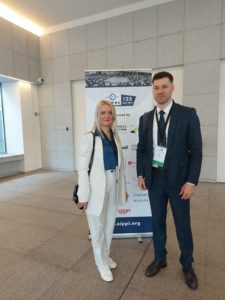Numerous claims in media that Russia’s response to sanctions will be encouraging infringement and backfire at companies from “unfriendly nations” in terms of IP protection are not accurate.
Global concerns are raised after an precedence decision was issued by the Arbitration court in Kirov on the lawsuit of One Entertainment UK Limited against a Russian entrepreneur over infringement of copyright to cartoon characters Peppa Pig and Daddy Pig, and trademark infringement with regards to IR № 1212958, № 1224441 (case No. A-28-11920/2021). The lawsuit was dismissed, because the judge considered it to be an abuse of rights, since the plaintiff is a legal entity from an “unfriendly” state. The decision, taken on 3 March 2022, can be appealed within a month in the Second Court of Appeals.
The judge referred to the Decree of the President of the Russian Federation “About application of special economic measures in connection with unfriendly actions of the United States of America and affiliated with them foreign states and international organizations” No. 79 of February 28, 2022.
This decision obviously was caused by misreading and misinterpretation of the mention decree, which does not stipulate or allows dismissing lawsuits initiated by entities from certain countries. Although such a court position is unprecedented, it was an initiative of a single judge, which will most likely be successfully appealed. It certainly does not demonstrate a common approach of the Russian arbitration courts and the Intellectual Property Court in particular or any official governmental position and cannot become a basis for similar decisions.
This ruling is considerably outweighed by recent decisions issued in favour of the very same One Entertainment UK Limited company over trademark and copyright infringement. For example, the following cases have been successful lately:
case А56-580/2022, decision of 15 March 2022: the court has ruled to collect compensation from the defendant (Russian individual entrepreneur) for infringement of copyright to cartoon characters Peppa Pig, Daddy Pig, Mummy Pig , George Pig and destroy counterfeited goods;
case А56-590/2022, decision of 15 March 2022: the court has ruled to collect compensation from the defendant (Russian individual entrepreneur) for infringement of copyright to cartoon characters Peppa Pig, Daddy Pig, Mummy Pig , George Pig and trademarks IR №1 212 958, № 1 224 440 and destroy counterfeited goods;
case А12-24261/2021, decision of 11 March 2022: the court has ruled to collect compensation from the defendant (Russian individual entrepreneur) for infringement of copyright to cartoon characters Peppa Pig, Daddy Pig, Mummy Pig , George Pig, Danny Dog, Rebecca Rabbit, Miss Sheep and trademarks IR 1212958, 1224441.
There is also a number of other favourable decisions in cases on trademark, copyright and industrial design infringements, where plaintiffs are entities from the countries that have been labelled as “unfriendly”, such the USA or South Korea:
case №А60-60028/2021, decision of 2 March 2022: the court has ruled to collect compensation from the defendant (Russian individual entrepreneur) for infringement of an industrial design No. 99993 owned by ENPRANY Co., Ltd. (South Korea) and bind him to stop the infringement by deleting information from marketplaces and civil circulation;
case А56-214/2022, decision of 15 March 2022: the court has ruled to collect compensation from the defendant (Russian individual entrepreneur) for infringement of trademark ROBOCAR POLI IR 1213307 and copyright to characters Robocar, Poli, Roy, Ember, Hally belonging to ROI VISUAL Co., Ltd. (South Korea) and destroy counterfeited goods;
case №А65-29944/2021, decision of 15 March 2022: the court has ruled to collect compensation from the defendant (Russian limited liability company) for infringement of copyright to character G-011 «CENTER STAGE» owned by MGA Entertainment Inc. (the USA) and destroy counterfeited goods;
case А50-31389/2021, decision of 15 March 2022: the court has ruled to collect compensation from the defendant (Russian individual entrepreneur) for infringement of trademark LOL No. 638367 owned by MGA Entertainment Inc. (the USA).
Court decisions that do not comply with the current legislation is a recurrent phenomenon in any jurisdiction, which is exactly why there exists the appeal system. A single erroneous decision does not demonstrate a tendency and cannot serve as a basis to jump to conclusions about the automatic cancellation of IP protection for companies outside of Russia. The Russian IP legislation is compliant with the international conventions and agreements, which is why it is necessary to keep monitoring and defending one’s rights.

